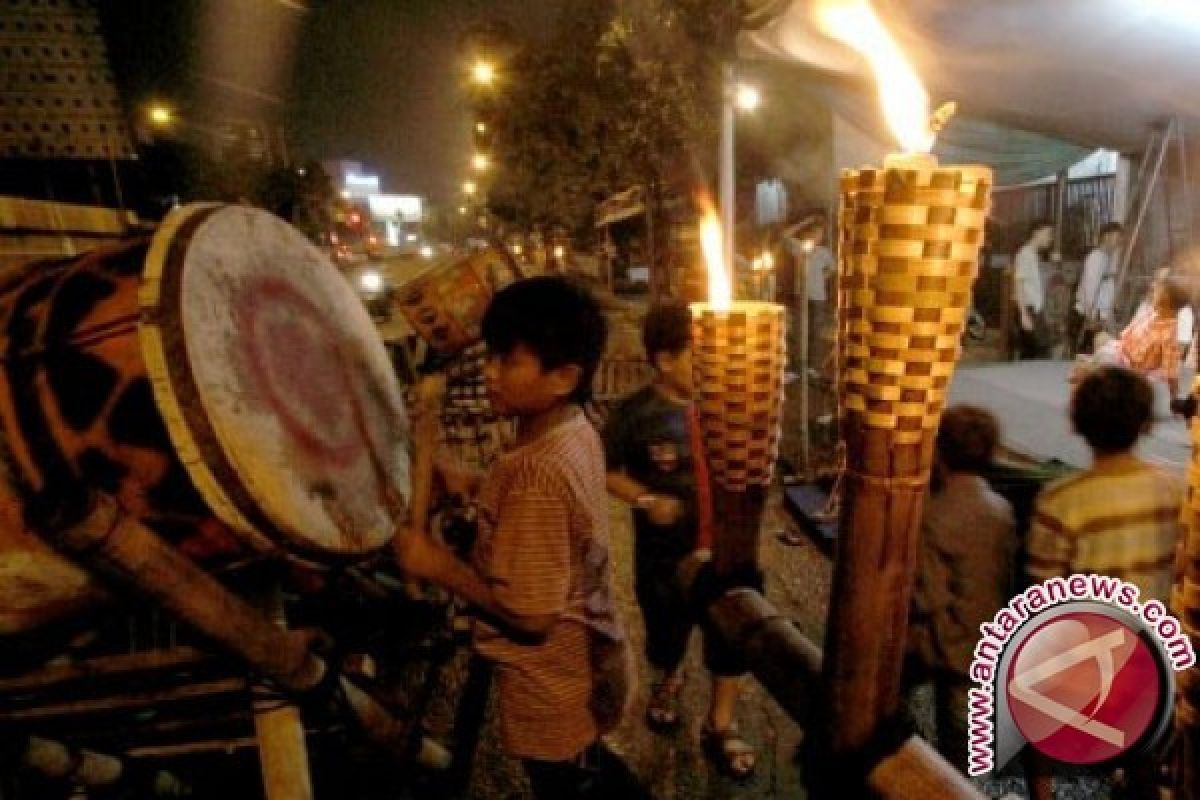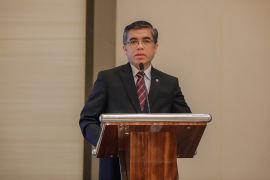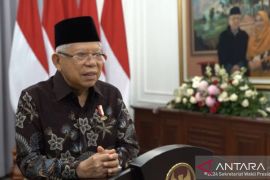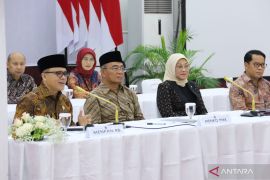After delivering his introductory remarks, Prof. Dailami called out to his younger siblings—Hj Nurfitria Farhana, MM, Hj Lily Kamalia Ichsana, SE, Hj Dr. Syifa Fauzia, MA—one by one to be introduced to the audience and asked them to outline their duties ranging from handling daily activities related to students and their teachers in the dormitory, educational affairs, administration, and finance.
They are the successors of the school’s founders, KH Abdullah Syafi’ie, mother Prof. Dr. Hj, Tutty Alawiyah, AS, MA, and father H.A.Chatib Naseh, who know no fatigue. Since the passing of Tutty Alawiyah, AS, who passed away on May 4, 2016, and his brother Reza a year later, several improvements have been made. In the physical field, construction and rehabilitation activities have been carried out. The school has, for instance, appointed several international teachers and the students have made achievements in robotic design.
This year, the As-Syafiiyah Orphan Special Boarding School, which was officially established on January 10, 1978, held a breakfasting event, distributed Eid 1444H packages and prizes to outstanding students at Graha Alawiyah, As-Syafiiyah college complex, Raya Jatiwaringin street No.11, Pondok Gede, Bekasi.
Prof. Dailami, who is also a member of the Regional Representative Council (DPD) RI from DKI Jakarta province, said the event is a routine activity that is held every year. “This time is very special. Because, in addition to the distribution of Eid packages, prizes were also handed over to students who excelled in various competitions,” he said.
Compensation was given in the form of Eid packages and prize money to all special orphaned students coming from various provinces throughout the country.
During their stay in the dormitory, the students not only study general and religious education formally, starting from elementary, junior high, and senior high school levels, but also get informal education, such as skills training. Those who graduate from high school receive scholarships to continue their education at As-Shafiyah Islamic University until they graduate.
Some of them even continue their education abroad.
This year, Dailami, who is also the chairperson of the Advisory Board of the Association of Indonesian Muslim Journalists (PJMI), played the piano to accompany the songs sung by the orphans.
"I have to do it,” Dailami joked, “I must go down the mountain to play the piano to accompany the songs sung by these orphans. Because the pianist in charge suddenly got sick.”
Fortunately, continued Dailami, who is usually called Bang Ferdy, when he was in high school he took piano lessons. So, to accompany the orphans in the song, he only needed a short time to practice adjusting the tone.
The breakfasting and distribution of Eid packages for the orphans was lively. The event, which began at 4 p.m. local time, was filled with various art performances. They included religious songs by the orphans. Clown performances and jokes by Jarwo Kuat, a comedian, entertained the children. There was also a group of singers from Ambon who performed a song that has gone viral on TikTok.
Based on Islamic literatures cited by yatimmandiri.org, supporting orphans is something that is recommended, and even Prophet Muhammad (PBUH) will guarantee an entry into heaven to people who are willing to support the lives of these groups of children.
Not only that, the Prophet has also said that heaven is located very close to people who sincerely provide compensation to these children.
However, there are many questions as to which children should be supported. Therefore, the definition of orphans is important to know. Speaking of this, there are still many people who do not understand who an orphan is. If defined linguistically, the word “yatim” means “infirad” or “alone.”
In Arabic, everyone who is living alone is described as an orphan. An example is the meaning of al-Yatimah, which means a widow who lives alone.
The word orphan is used for humans, as Ali ibn Muhammad al-Jurjani said in his book at-Ta”rifat. In it, he says that an orphan is a child whose father has died, while in animals, an orphan is a little one whose mother has died.
According to shariah, what is meant by an orphan is a child whose father has died and who has not reached puberty. A child is called an orphan till the time they reach the age of puberty and adulthood.
Commissioner of the Financial Services Authority (OJK), Firdaus Djailani, who is a relative of Prof. Dailami, was also asked to deliver a speech at the event. In his speech, he invited all worshipers to pay attention to the fate of orphans.
He also lauded his nephews who are continuing the struggle of HJ. Tutty Alawiyah, the pioneer of pesantren. “If not us, who else will take care of them,” said Djailani.
Many Islamic boarding schools, Islamic organizations/institutions, and companies are carrying out activities similar to the ones conducted by the Special Islamic Boarding School for Orphans, in particular, by providing compensation for orphans in the holy month of Ramadan 1444 H.
Institutions related to the provision of compensation for orphans who perform the task in a modern and professional manner are also scattered both domestically and abroad.
Yatim Mandiri, for instance, is a National Amil Zakat Institution (LAZNAS) owned by the Indonesian people who are devoted to lifting the social dignity and humanity of orphans with ZISWAF funds (Zakat, Infaq, Shadaqah, Waqf) and other funds that are halal and legal, which are collected from individuals, groups, companies/institutions.
It grew out of the anxiety of several orphanage activists in Surabaya, East Java, namely Sahid Has, Sumarno, Hasan Sadzili, Syarif Mukhodam, and Moch Hasyim, who saw orphans who graduated from high school in orphanages.
Since not all orphanages were able to send orphaned children for higher education, the orphanage activists were concerned that the children would not be able to afford to go to school.
*) Mohammad Anthoni was a senior journalist with the ANTARA News Agency from 1989–2018.
*) The views and opinions expressed on this page are those of the author and do not necessarily reflect the official policy or position of the ANTARA News Agency
Related news: Apply Ramadan values in daily life: Gorontalo Governor to ASN
Related news: Celebrating interfaith tolerance in Papua
Copyright © ANTARA 2023












